A condemned house is a property that has been declared unfit for human habitation due to safety issues such as structural damage, hazardous materials, or other violations of applicable building codes. These properties are usually identified by inspections conducted by local government authorities such as fire departments, health departments, and building inspectors.
When a home meets the criteria of a condemned house, the owner will be notified and given an order to make the necessary repairs to bring the property up to code. If the repairs cannot be completed within a certain time frame, the house may be demolished or sold at auction.
In many cases, owners of condemned houses are held responsible for any costs associated with demolishing or selling the property. It is important for homeowners to understand their rights and obligations when dealing with a condemned house in order to avoid any additional financial burden.
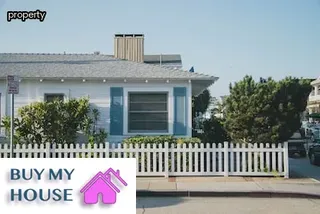
Condemning a home is typically done as a last resort when other options have been exhausted and the property is deemed to be a danger to the public. In most cases, it is the responsibility of local governments or state agencies to enforce building codes and other regulations to ensure public safety.
It can occur for a variety of reasons, including structural instability, hazardous materials, illegal construction or modification, or failure to meet basic safety standards. Oftentimes, the owner of the property will be held accountable for any violations and may even be held liable for any damages resulting from inadequate upkeep.
When this happens, they can face severe penalties such as fines and even jail time in some cases. It's important to make sure you're up-to-date on all applicable laws so that you can avoid having your house condemned in the first place.
When a property is condemned, the evaluation process for determining the future of the home can be extensive and complex. An inspection of the property will typically be conducted by a building inspector or similar official to assess the safety and condition of the home.
This inspection will include looking at factors such as structural integrity, potential health hazards, and other potential issues that could make inhabiting the dwelling dangerous. The inspector will also look into whether or not any necessary repairs are possible or if they would be too costly.
Depending on their findings, it may be determined that the best course of action is demolition. If this happens, it is up to the owner to follow through with the decision and work with local authorities in completing this task.
Furthermore, measures may need to be taken in order to protect neighboring properties from any damage caused by demolition. In some cases, a particular timeline may be provided to adhere to as well as additional regulations that must be observed during this period of time.
Ultimately, all decisions regarding a condemned property ultimately fall on its owner and can have lasting impacts depending on how these matters are handled.

Eminent domain is a process by which the government can take control of private property for public use. In some cases, this involves condemning homes and other properties.
However, not all properties are subject to condemnation. Non-condemned homes are typically not subject to eminent domain, but they may still be affected by it.
For example, when a nearby home is condemned, the owner of the non-condemned property may experience decreased value or difficulty selling due to the stigma associated with being near a condemned house. Furthermore, if the government takes control of land surrounding a non-condemned home, it could affect things like access to roads or utilities and decrease property value as well.
In order to ensure that their rights are protected, owners of non-condemned homes should familiarize themselves with their local laws and understand their rights in regards to eminent domain.
The process of condemning a house can take anywhere from a few days to several months, depending on the severity of the issues and whether or not the owner has complied with any orders to repair it. Local authorities have the power to inspect properties and order their owners to make repairs in order to bring them up to minimum code standards.
If, after a certain period of time, these repairs are not made, legal action may be taken. This includes filing an official complaint with a court, which will then decide if the property should be condemned.
The judge typically gives the owner some time to make repairs before issuing an official condemnation order, but this varies from case-to-case. Depending on how quickly the owner complies with the court's orders, it can take anything from weeks to months for the entire process to be concluded.
Ultimately, how long it takes for a house to be condemned depends largely on how willing its owner is in taking action.
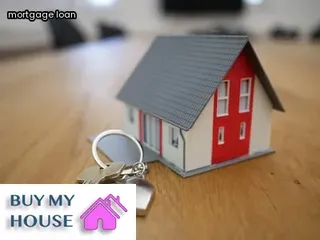
When a property is officially condemned, the owner's rights are limited. They may not be able to enter the property and must abide by local regulations.
In some cases, the owner is responsible for any costs associated with abating hazardous conditions or demolishing the property. Depending on local ordinances, the owner may also be held liable for any injury or damage caused by the condition of the property.
Additionally, if a property is condemned due to code violations, it can have an impact on their ability to receive financing in the future. It is important for owners of condemned properties to understand how to proceed in order to minimize potential liabilities and ensure that their rights are respected throughout the process.
It is important to understand the legal implications of owning a condemned house and how to prevent it from happening in the first place. Home condemnation is when a local or state government has deemed a dwelling unfit for living and has ordered its occupants to vacate immediately.
There are a few strategies that homeowners can take in order to protect their property from being declared uninhabitable. First, make sure that all building codes and regulations are met and up-to-date with regards to the structure of the house.
Keeping up with regular maintenance and inspections can help ensure that any potential issues are addressed as soon as possible. Additionally, if there is an issue such as water damage or structural damage, it should be fixed immediately rather than waiting for it to become worse over time.
Finally, contact your local zoning department or building safety office if you have any concerns about the condition of your home. It is important to take action early so that any necessary repairs can be made before a home becomes condemned by local authorities.
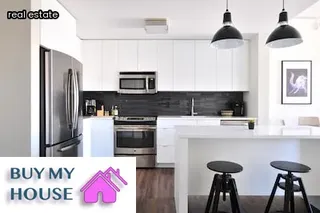
When selling a house that has been condemned, it is important to understand the process and the implications for both buyers and sellers. Several factors can lead to a home being condemned, such as structural issues or unsafe living conditions.
Depending on local laws, the owner may be responsible for making repairs in order to bring the home up to code before it can be sold. It is also important to understand that condemnation can have significant financial implications; if a sale does not occur within a certain timeframe, the owner may become responsible for paying additional fines or fees associated with the property.
Selling a condemned house typically involves working with real estate agents who specialize in such transactions as well as inspectors and contractors who are familiar with local building codes. Buyers must also be aware of potential risks associated with purchasing an unlivable home and should make sure they are fully informed of any restrictions or stipulations regarding the sale.
Purchasing a condemned house may seem like an intimidating prospect, but it can come with some advantages. For starters, condemned houses are usually sold at a much lower price than non-condemned homes.
Buyers should also be aware of potential financial incentives offered by the local government to encourage the rehabilitation of condemned properties. Additionally, those who take on the responsibility of rehabilitating a condemned house could potentially increase its value and eventually gain a good return on their investment.
On the other hand, there may be numerous issues that require costly repairs before the property is livable or even marketable. Before committing to such a purchase, buyers should carefully consider all aspects of the property and weigh the pros and cons to ensure that it is worth investing in.
Furthermore, buyers should also be aware that they may become legally responsible for any fines due to violations incurred by prior owners. Ultimately, owning a condemned house requires dedication and financial commitment; however, if done right, it could provide an opportunity for significant gains.
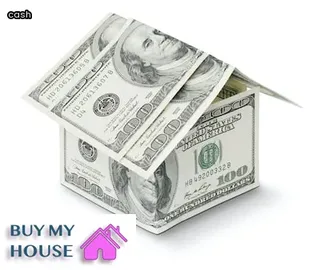
The cost to purchase a condemned house varies depending on the condition of the house and the demand in the market. Generally, purchasing a condemned house will require more money due to its disrepair and potential for hazards.
The owner of a condemned house is responsible for the full cost of repairs before it can be resold or inhabited. Depending on the size and complexity of improvements needed, costs can range from a few thousand dollars up to tens of thousands.
Furthermore, buyers should also consider additional costs such as taxes and other fees associated with purchasing real estate, which can add up quickly. In some cases, it may be more cost efficient to demolish an existing structure and start fresh with a new build than to repair an existing condemned property.
When it comes to condemned houses, many people assume that the owner is stuck with a property that can never be restored. However, depending on the extent of the damage and the resources available, there are ways for a home owner to salvage their damaged house.
Restoration efforts may include everything from minor repairs and renovations to complete rebuilds and rebuilding services. In some cases, local governments may provide grants or subsidies to assist in restoring a condemned house.
Before beginning any restoration project, it's important to contact local authorities to ensure all safety codes are met. Additionally, consulting with experts in building restoration or preservation can help guide owners in restoring their property.
With careful planning and attention to detail, a condemned home can be restored back to its former glory and become a safe place for living once again.
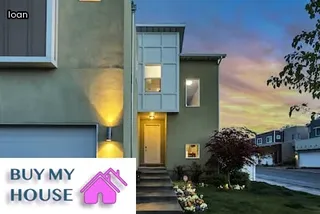
Condemned houses are often the result of severe structural damage, health and safety hazards, or a combination of both. A house can be condemned if it has been damaged by fire, flooding, or other natural disasters.
It can also be condemned due to negligence on the part of the homeowner in maintaining the property's safety and security. In addition, certain building code violations may lead to condemnation if not corrected.
Structural damage resulting from poor construction or lack of upkeep can cause a house to be deemed unfit for habitation and therefore condemned by local governments. Finally, overcrowding due to excessive occupants can also lead to a structure being declared uninhabitable and thus condemned.
No matter what the cause may be, when a home is condemned its owner must comply with regulations set forth by their local government in order to restore it back into livable condition and regain ownership rights.
Owners of condemned houses face a variety of consequences. In some cases, the owner may be held financially responsible for the demolition of their home and any related costs, such as removal of hazardous materials or toxic waste.
Additionally, if the owner has not taken action to rectify the hazardous conditions in the house prior to condemnation, they may face criminal prosecution and fines. Furthermore, a condemned house often affects neighboring properties, potentially lowering their property value and creating an unsightly environment in the community.
Finally, owners may find it difficult to obtain insurance coverage for a condemned house in the future due to its dangerous condition. It is important for owners of condemned houses to understand all potential consequences that could arise from owning such a property so that they can make an informed decision about how to proceed.
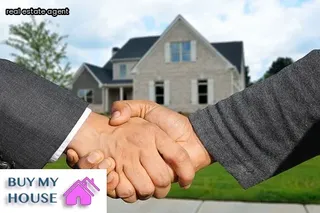
It is important to understand the legal implications of occupying and residing in a condemned home. In many cases, this is not a legal option as it can be an infringement on the rights of the owner, or even worse, can represent a danger to public health and safety.
Generally speaking, if a structure has been deemed unfit for human occupancy by government authorities, then it would be illegal to live in that building and could result in fines or other penalties. Depending on the jurisdiction and circumstances, an owner may be able to appeal the order of condemnation, however it is important to note that this process can take time and may require that certain repairs are made before the property is considered safe for living.
Landlords must also ensure they are aware of any local ordinances which might apply to repairing or demolishing condemned buildings - failure to follow these rules can mean further violations of code and additional financial penalties. Ultimately, it is best practice to consult with local authorities before deciding whether or not it is legally permissible to occupy or reside in a condemned home.
A home may be condemned for a number of reasons, such as unsafe living conditions or illegal activity taking place on the property. Structural issues, like rotting wood or crumbling foundations can also make a home uninhabitable and thus subject to condemnation.
Health hazards, including mold or asbestos, are another common cause of condemnation. Unpermitted additions to the property, such as an illegal basement apartment or unapproved electrical wiring, may also result in the condemnation of a residence.
In some cases, homes that were previously used for commercial purposes may not meet current residential building codes and could be condemned by local authorities if they cannot be brought up to code. Finally, zoning violations can also lead to the condemnation of a home.
The owner of a condemned house is typically responsible for bringing it up to code or demolishing it in accordance with local regulations.

When a house is condemned, the owner is typically given notice and must vacate the property immediately. The city or county that has condemned the house then takes ownership of it and usually puts it up for sale.
In some cases, the government may tear down the structure to make way for new development. Depending on local laws and regulations, an owner may be able to recoup some of their financial losses as compensation for having to leave their home.
In other instances, however, they may not receive any type of reimbursement at all. Some cities have enacted laws requiring owners to pay for demolition costs in order to clear the land for other uses.
Additionally, there could be fines imposed if the issue isn’t addressed promptly by the owner or if hazardous materials are found on-site. In extreme cases, an owner may even face criminal charges if they neglect to take action when their house is declared unfit for human habitation.
When considering a house that has been deemed uninhabitable or condemned, it is important to understand the difference between the two. A home that is considered uninhabitable may have safety issues including mold, old lead-based paint, asbestos or other dangerous materials that may present a risk to the health of those living in or around the property.
On the other hand, a condemned house is one that has been deemed unsafe by local officials and is not fit for human occupancy due to structural damage or other safety risks. When a house is declared condemned, it must meet certain building codes and safety standards in order for it to be re-occupied by its owner.
The process for repairing and restoring a condemned home can be lengthy and expensive, depending on the extent of damage. In addition, if an owner fails to make necessary repairs in a timely manner, they may face penalties from local authorities such as fines or eviction from their property.
Ultimately, understanding what makes a house uninhabitable versus condemned can help owners make informed decisions when it comes to taking care of their homes.
The process of condemnation begins when a regulatory agency, such as a city or county government, finds that a property is unfit for human habitation due to safety or health concerns. The government may then initiate legal action to take possession of the property and declare it as condemned.
To do this, the governing body must issue a Notice of Intent to Condemn that serves to inform the owner of their rights and obligations regarding the situation. Once served with this document, the owner typically has 30-90 days to contest the proposed condemnation in court.
If they fail to do so, or are unsuccessful in contesting it, then ownership will be transferred from them to the governmental entity. The owner may then be offered compensation for any personal property found onsite at the time of transfer.
Depending on local laws, they may also receive some portion of any assessed value increase should the property eventually be sold by the governmental agency after being rehabilitated and resold.